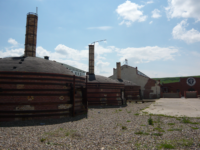Advisory committee continues working toward reconciliation
By Tim Kalinowski on June 26, 2021.
LETHBRIDGE HERALDtkalinowski@lethbridgeherald.com
All week long the Lethbridge Herald has been celebrating National Indigenous History Month with powerful stories from the community, and as the week draws to a close we would like to remind readers that celebrating local Indigenous peoples, and their cultural contributions to the region, shouldn’t just be confined to just one week a year.
In this spirit, the Reconciliation Lethbridge Advisory Committee continues to speak out about local Indigenous issues and advise city council on how to take baby steps forward to foster change and bring up true reconciliation in the community.
“I am very proud of what we have been working on towards reconciliation,” says RLAC co-chair Trina Tallow. “Reconciliation is about balancing our worlds together, and opening a space where we can share our truths and garner understanding together. I think the work we have been doing with the City has been very meaningful and a way of building our futures together, where Indigenous people can express their ways of knowing and being, and feel connected to our cultures.
“The City of Lethbridge has provided a foundation toward that; so we are walking together collectively to be able to build these infrastructures to be able to help us connect better with our culture, and connect better collectively as an entire city,” she states.
“I think one of the most important accomplishments of the last year has been work that has been ongoing for awhile now,” adds fellow co-chair Patrick Wilson; “which is recommendations around the commission that reported on the findings around Missing and Murdered Indigenous Women and Girls. RLAC reviewed the much larger document that came out of that national inquiry, and with the help of Perry Stein and Pam Beebe at the City, who provide direct support to RLAC, we came up with a list of 26 recommendations for council about things the City could do to help address both the present crisis and the legacy of missing and murdered Indigenous women and girls. This was generously funded by the City with a budget of over $500,000 to work toward addressing each one of these 26 initiatives.
“We are really excited about that. We think it is particularly important in the immediate aftermath of the horrific discovery of the bodies of the 215 children in Kamloops, and addressing the legacy of the genocide that has been committed against Indigenous people here. It’s as important as ever, we think.”
Tallow says the only way to foster better understanding and healing between Indigenous and non-Indigenous people in Lethbridge is to build strong personal ties and relations between individuals, which is also why building a new Indigenous cultural centre in Lethbridge takes on greater importance.
“It comes down to garnering community support to help us build this foundation to where we are living healthy lives together,” explains Tallow. “Building relationships is very important as far as building understanding. If a person wants to understand Indigenous people, the best way to do that is to get to know Indigenous people. You spend time with them, ask questions, and collaborate on different projects together. With the committee we are looking at building that education.”
Wilson says reconciliation is not an easy path for people to walk after years of division and strife, and he has been blown away by the sincerity and generosity with which committee members, their allies, and city councillors have applied themselves to this difficult work.
“One of the things about reconciliation that is important to keep in mind is we are all likely to make mistakes during the process, and so what is important is what you do after those mistakes,” Wilson says. “Do you acknowledge that a mistake has been made? And do you reach out to try to figure out how you can do better? And council has done that.
“One of the things I have been struck by, and I have been on the committee going on four years now, is how generous everyone is,” he adds. “The committee is about 50 per cent non-Indigenous and 50 per cent Indigenous. I have been struck by, over and over again, how willing and generous and tirelessly Indigenous members of the committee, and also Indigenous people more generally in Lethbridge, are willing to educate, explain, and forgive; over and over again. Not forgive and forget, because we need to enact change. But forgive, and say we recognize there are going to be mistakes too. But if you listen to us, and try to do better the next time and do better the next time, then we will be on a better path.”
Tallow says it is all about people’s willingness, not just at committee but the community at large, to bring “positive medicine” to the broader reconciliation effort.
“Yeah, we hear about all the negative stuff,” she acknowledges. “But it is the responsibility of each and every person in Lethbridge to come out and bring positive medicine to the community. And I think National Indigenous Peoples Week is a way to do that.”
Follow @TimKalHerald on Twitter
4-3



